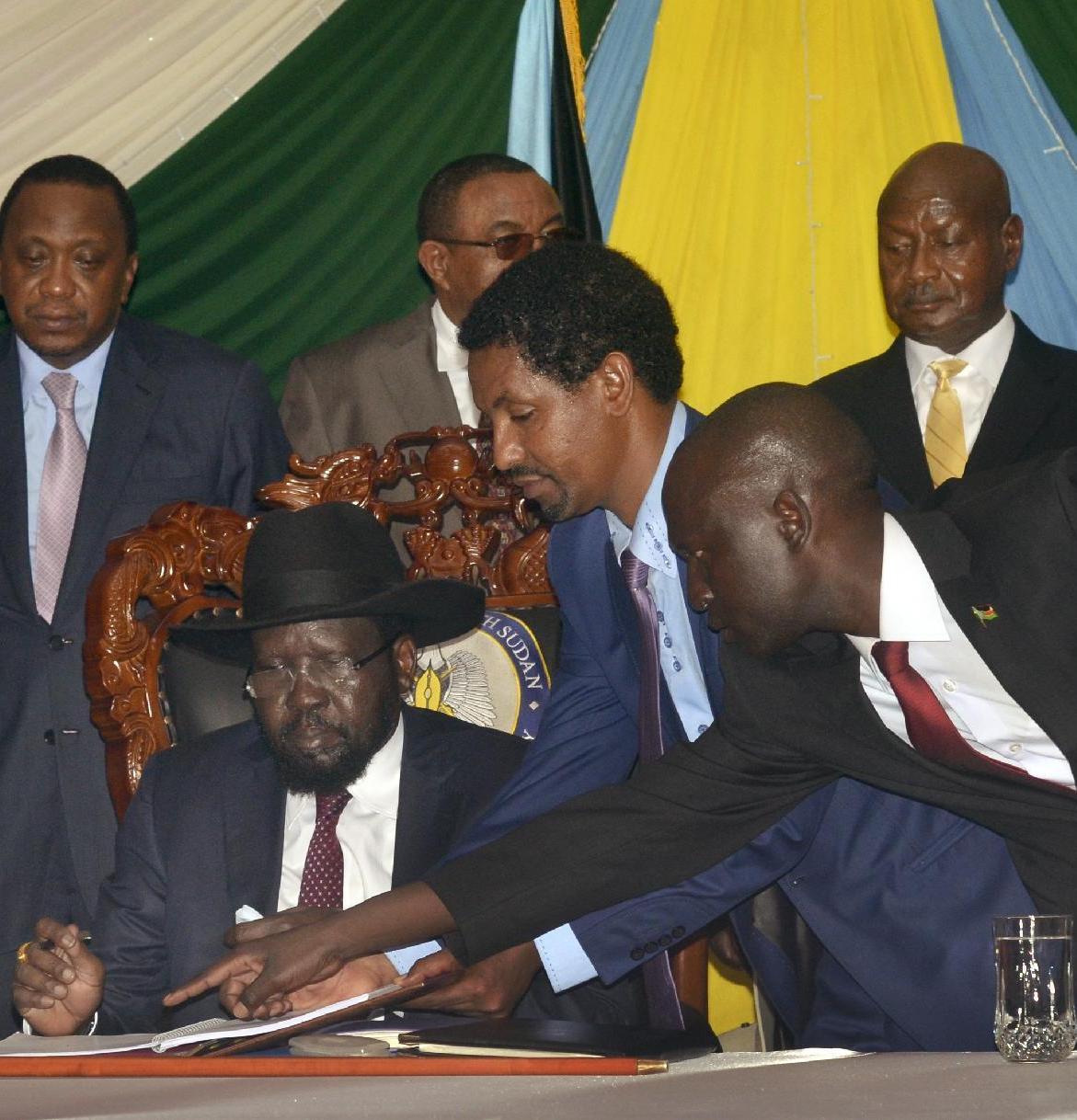South Sudan leader signs peace deal amid sanctions threat
South Sudan President Salva Kiir on Wednesday signed a peace deal with rebels, more than 20 months after the start of fighting between the army and rebels led by his former deputy. Kiir signed the agreement in Juba, South Sudan’s capital, in a ceremony witnessed by regional leaders. Kiir said he was signing the document despite having serious reservations. He signed the same agreement endorsed by rebel leader Riek Machar, said Kiir’s spokesman Ateny Wek Ateny. Machar, the former deputy president, signed the agreement last week in Ethiopia but Kiir refused, saying he needed more time, drawing condemnation from diplomats who want a quick agreement to end the violence in the world’s newest country. Kiir was under intense pressure to sign the compromise accord mediated by a group of neighboring countries, with the U.S. threatening new U.N. sanctions if he failed to do so. Signing the agreement Wednesday, Kiir said he felt the peace deal had been imposed on him and said it is flawed.
(Some aspects of the deal) are not in the interest of just and lasting peace. We had only one of the two options, the option of an imposed peace or the option of a continued war … We are here talking about peace.
President Kiir
The agreement binds Kiir into a power-sharing arrangement with Machar, a political rival whose dismissal in July 2013 sparked a political crisis that later boiled over into a violent rebellion. The fighting has often been along ethnic lines, pitting Kiir’s ethnic Dinka people against Machar’s Nuer. The accord calls for the establishment of a coalition government within 90 days. Previous cease-fires have been quickly broken, however, with both sides accusing the other for truce violations. It also calls for a demilitarized Juba, one of the key sticking points for Kiir’s side during negotiations, and also delays national elections until 2018 at the earliest. The U.S. and its partners welcomed the signing and said in a statement Wednesday that that there would be consequences for those who return to arms, urging an immediate and permanent ceasefire by warring factions.
President Kiir made the right decision to sign the peace agreement today, but we should be just as clear that the United States and the international community does not recognize any reservations or addendums to that document.
White House spokesman Josh Earnest

Africa south sudan